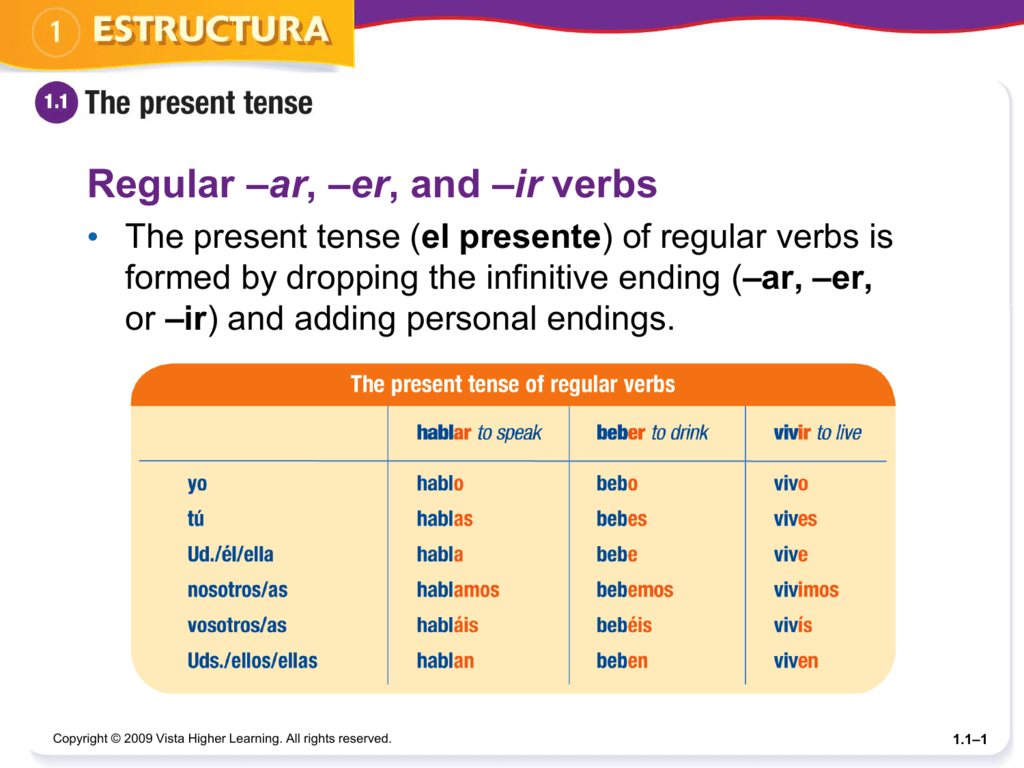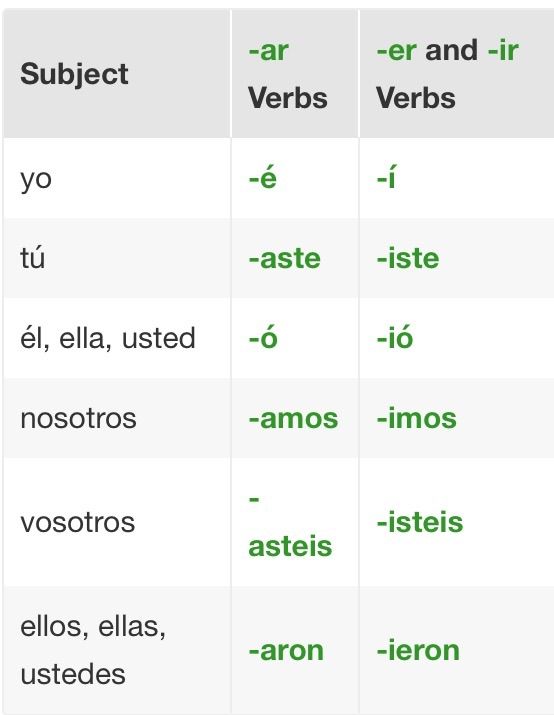
In order to offer a more simplistic verb conjugation snapshot, in this article, we only employ the masculine versions of the plural forms nosotros (we), vosotros (you), and ellos (they). With the fishermen and the fishermen accepted.Ĭaption 17, Instinto de conservación - Parque Tayrona Play CaptionĢ. Let's take a look at this in action with the preterite conjugation of the verb hablar (to speak/talk):Ĭaption 83, Yago - 7 Encuentros - Part 14 Play CaptionĬon los pescadores y los pescadores aceptaron. While usted (the formal, second-person singular "you") does not appear in our conjugation lists, keep in mind that when using that pronoun, the verb is conjugated in the exact same way as verbs in the third-person singular forms with él (he) and ella (she). There are a couple of things we want to mention about the conjugations you will find throughout this tutorial.ġ. Note that the only change necessary to form the preterite in this example is removing the -ar ending of the infinitive verb and replacing it with the ending -é.Ī Note About the Conjugations in This Lesson In this example, trabajé is the preterite conjugation of the regular verb trabajar for the first-person singular yo (I). 1: Perfecto simple o Indefinido Play Caption


Let's look at an example from the series where our friend Carlos talks about this tense:Ĭaption 30, Carlos explica - El pretérito Cap. In very simple terms, when we talk about the Spanish preterite tense, we are talking about the simple past, in other words, a completed action that took place at a determined point in the past. BANNER PLACEHOLDER The Preterite Tense in Spanish But first, let's review the main idea behind the preterite tense in Spanish.
Ar er and ir preterite endings how to#
In particular, let's see how to form the preterite conjugation of regular verbs ending in - ar, - er, and - ir.

Let's talk about the Spanish conjugation of regular verbs.


 0 kommentar(er)
0 kommentar(er)
